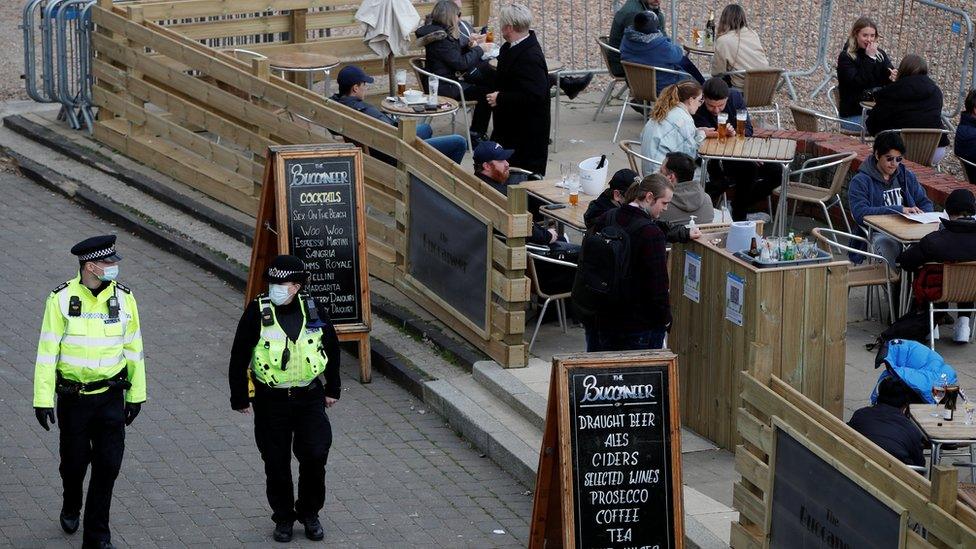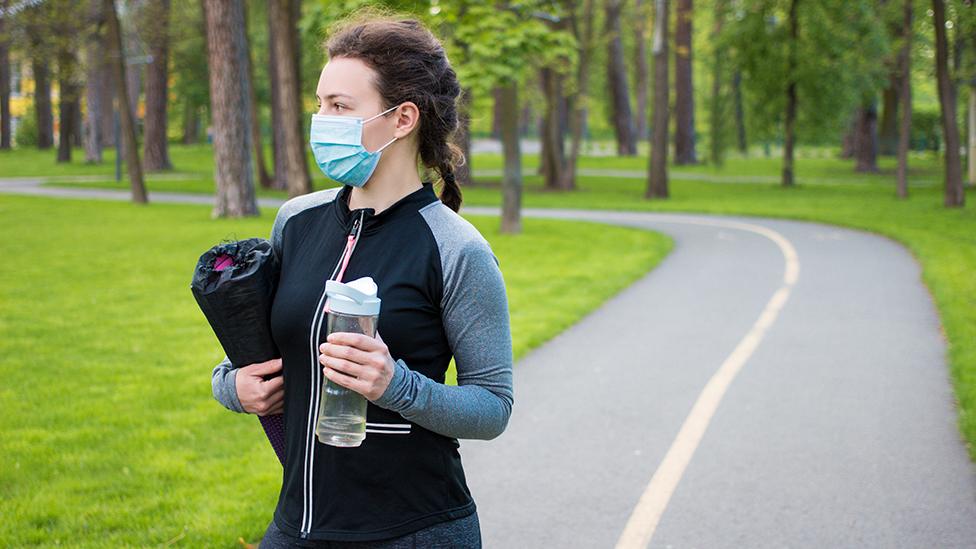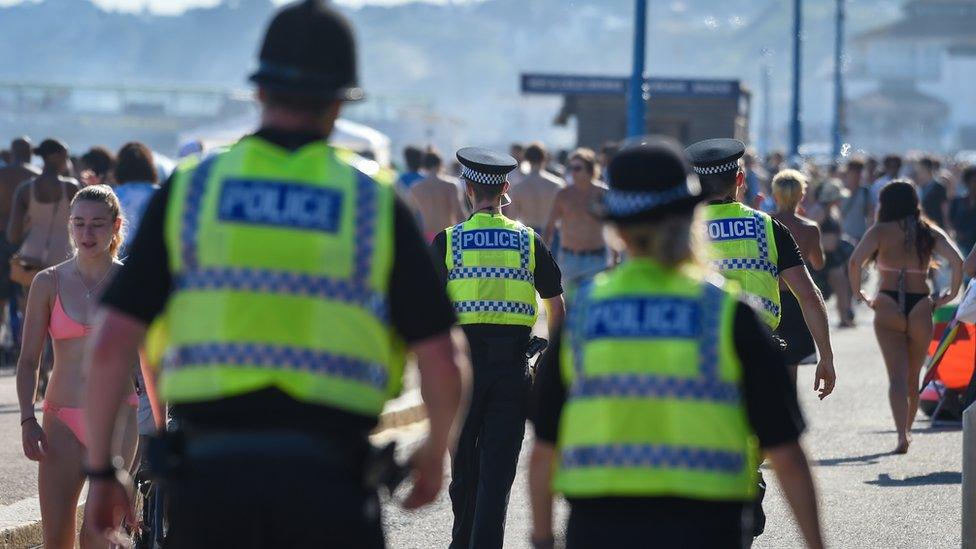Covid: Police watchdog says officers confused by unclear pandemic laws
- Published

A review of policing says officers sometimes struggled to enforce coronavirus restrictions because of a lack of clarity from ministers.
The analysis by a policing watchdog found chief constables heard about new restrictions from the government's television briefings.
Confusion led to mistakes, putting confidence at risk, say inspectors.
The report says that despite major challenges, forces in England and Wales learned from mistakes.
It adds that it is essential the police do not become seen as "coercive agents of ministers".
Her Majesty's Inspector of Constabulary and Fire and Rescue Services (HMICFRS), the body that reviews how well police do their work, said the rapid introduction and repeated changes to coronavirus laws left forces confused.
"Despite close working between the Home Office and national policing leaders, communication about restrictions and regulations was often at short notice and subject to change," says the inspectors' report.
"Many forces expressed frustration at the way that some government announcements were communicated... they had not been consulted in advance.
"This made it difficult to produce [internal] advice to forces on enforcing legislation."
Police chiefs in England told the inspectors they had little access to policymakers in the Department of Health and Social Care (DHSC), who were devising the new laws.
Some were so concerned about what they were legally required to do, they took their own legal advice.
"Some forces expressed concern that they first heard of certain changes at the 5pm daily televised government briefings," says the report.
"In some cases, the changes required immediate implementation and many forces felt disadvantaged by a lack of notice and consultation.
"Their difficulty was made worse by a widespread confusion in relation to the status of government announcements and statements by ministers.
"Ministers asserting that their guidance - which had no higher status than requests - were in fact 'instructions to the British people' inevitably confused people."

LOOK-UP TOOL: How many cases in your area?
LOCKDOWN RULES: What are they and when will they end?
SOCIAL DISTANCING: How can I meet my friend safely?

Examples include widespread confusion over whether repeat daily exercise had become a crime - it hadn't - and whether the two-metre social distancing "rule" was a legal requirement, when in fact it was only good practice.
"In these circumstances, mistakes were made... High-profile examples included road checks to identify unnecessary journeys, drone surveillance of people in open and almost deserted places, and police action in relation to non-essential shopping and what was thought to be excessive exercise."
"And as difficulties arose and some well-publicised mistakes were made, public confidence in, and support for, the police were inevitably put at risk."
The chairman of the National Police Chiefs' Council, Martin Hewitt, said the report recognised the past 12 months had been "one of the biggest challenges to face modern policing, and that the service has stepped up and met that challenge head on".
He added: "We haven't always got things right straightaway, and we have sought throughout the pandemic to learn as we go and improve the service we provide."
A Home Office spokesperson said: "The police have worked tirelessly to keep us safe during the pandemic and as this report shows, took immediate and decisive action to help protect the NHS and save lives.
"Whilst the majority of us have been able to stay at home, our courageous officers have been out on the streets pursuing criminals, protecting the public and enforcing the coronavirus rules where necessary."
A Home Office spokesman praised the police for tirelessly working during the pandemic and said there had been a constant dialogue with chiefs that had informed the devising of restrictions.

MENTAL HEALTH IN THE PANDEMIC: Stacey Dooley experiences how the pandemic is affecting patients
A HARMLESS ACT TURNED INTO A SEVERE ADDICTION: Gambling turned Tony's life upside down

Related topics
- Published12 January 2021

- Published1 July 2022

- Published28 March 2021
